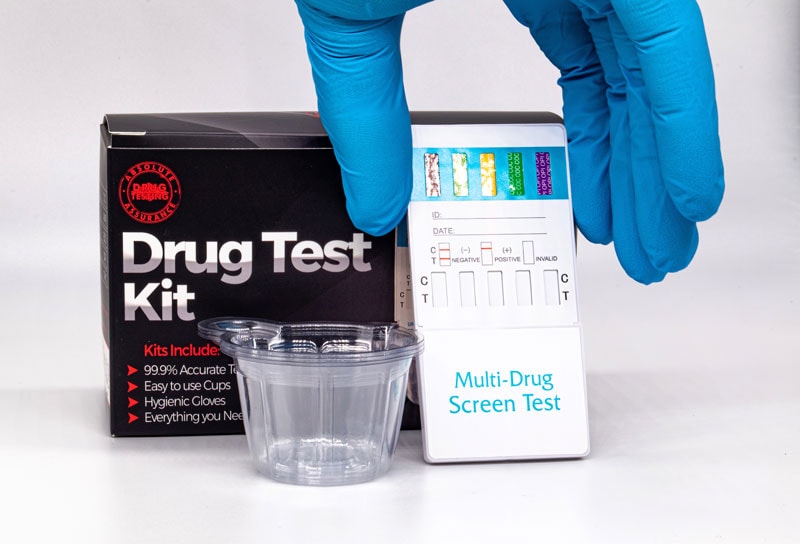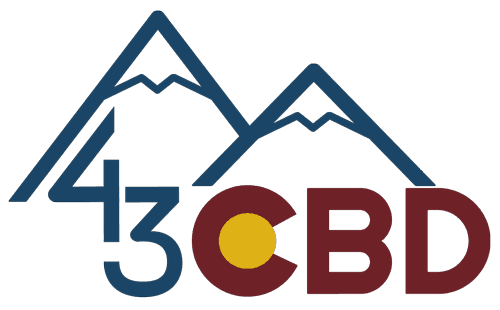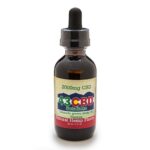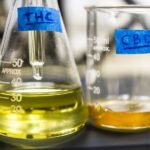
CBD (cannabidiol) products can now be found everywhere from online to your local health food store.
It is a cannabinoid found in cannabis and is studied for its potential health benefits and many people use it for easing symptoms with conditions like anxiety, inflammation, depression, and joint pain. CBD is typically derived from hemp, which are selectively bred varieties of Cannabis sativa that meet the legal amounts of THC under federal law (0.3%).
The popularity of this alternative medicine has many employees (and employers) wondering if CBD is safe to consume when it comes to drug screening.

CBD does not show up on a drug test, but many CBD products include trace amounts of THC, which may cause one to fail a drug test. While it’s unlikely the modest amount will trigger a positive result for THC on a drug test, it may be best to not take a chance if there is even the slightest bit of THC in the product.
In fact, using a full spectrum CBD product once will probably not fail a drug test- but since THC is fat-soluble, it gets stored in the body’s fat tissues making it possible to test positive for THC with prolonged use.
Think of it this way…
If you were to eat poppy seed bagels every day for a month, then you might test positive for opioid use. The same concept goes for full spectrum CBD products. Unless you are a chronic heavy user, then you will likely be in the clear with a full spectrum oil. Alternatively, you can opt for a safer option with a broad spectrum oil, which has all THC removed from the whole plant extract.
How Much THC Does it Take to Test Positive on a Drug Test?
There are many variables to determine how much THC needs to be present in the body to fail a drug test including:
- Frequency of use
- How it was consumed
- Body Mass
- Presence of other drugs
- Period of last ingestion
- Other medical conditions (such as kidney disease)
For marijuana users, it is estimated that the length of time THC is detectable in urine is:
- Chronic Heavy User: 30+ days
- Daily User: 10 – 15 days
- Moderate User: 5 – 7 days
- Single-use: 3 days
These estimates are based on the use of marijuana, which has over 0.3% THC as opposed to hemp (less than 0.3% THC) so it is likely the numbers are much lower with only CBD use.
Luckily, there are options for those looking to explore the potential benefits of CBD while not having to worry about failing a drug test. The three main options to choose from CBD products include:
Full Spectrum Oil & Drug Testing
Broad Spectrum Oil & Drug Testing
You may also be wondering… why would there even be trace amounts of THC in a CBD product?
To answer this question, one might explore the functions of cannabinoids found in cannabis.
Cannabinoids and the Cannabis Plant
The cannabis plant is made up of over 100 naturally occurring compounds called cannabinoids. CBD is one of those cannabinoids. THC is another one of those cannabinoids. While CBD and THC gain all the attention (and most of the research), there are many other notable cannabinoids that have been gaining attention in recent studies including CBG, CBN, and CBC.

CBD products that have a trace amount of THC also include many of these other cannabinoids in what is known as a whole-plant extract or full spectrum oil. The idea is that a whole plant extract allows a natural synergistic relationship to take place with the various cannabinoids to encourage a larger range of benefits. This natural phenomenon is called the entourage effect and is the reason why many companies offer a full spectrum CBD oil.
Are the trace amounts of THC really enough to fail a drug test?
Probably Not.
But, if your job or freedom is on the line, then you might want to consider a broad spectrum or isolate option.
Full Spectrum CBD Oil and Drug Testing
It is truly complicated to be able to tell if you will pass or fail a drug test while using full spectrum oil. By U.S. law, the amount of THC content in hemp or CBD products is required to be less than 0.3%. Such a small amount is unlikely to test positive for THC but there have been recorded accounts of people failing drug tests while using full spectrum oil and not using marijuana.
Our recommendation is simple.
Don’t risk it.
You can still enjoy the potential benefits of CBD and the other cannabinoids found in hemp without THC using a broad spectrum, THC-free oil.
Broad Spectrum Oil and Drug Testing
Broad spectrum CBD oil (often called THC-free) includes the same collection of cannabinoids found in the hemp plant but has all traces of THC removed. It is the ideal option for those looking to enjoy the potential benefits of having multiple cannabinoids working together but need a solution without THC.

A broad spectrum oil will also have all the terpenes and flavonoids found in hemp and full spectrum oils.
There is also another option that might be a good bet for those looking for a CBD oil that is stripped of THC known as CBD Isolate.
CBD Isolate and Drug Testing
While full spectrum and broad spectrum oils focus largely on providing a full range of cannabinoids from a whole plant extract, CBD isolate is a pure form of CBD that has had all cannabinoids and plant impurities removed.
Simply stated, CBD isolate contains ONLY pure CBD.

Many users prefer a CBD isolate over a full or broad spectrum option and might be the easiest option to quantify an exact amount of CBD being consumed. The disadvantage to this method would be the lack of other cannabinoids and terpenes to produce the synergistic relationship known as the entourage effect.
An isolate also has the disadvantage of having to undertake extensive and complex processing when removing or adding different solvents. Some may argue that having such a complex system for processing can compromise the final extract and is more unnatural than a full or broad spectrum oil.
Choosing CBD isolate would be an option for those looking to enjoy the potential benefits of CBD without any THC since it is pure and has had all other cannabinoids and plant matter removed but due to the disadvantage of extensive processing as well as the lack of the entourage effect, we do not craft isolate products and recommend a broad spectrum oil for users needing a THC-free option.
Which Option is Best to Not Fail a Drug Test?
As previously mentioned, the three main choices for CBD include full spectrum, broad spectrum, and isolate. While full spectrum oils contain less than 0.3% THC (required by the U.S. 2018 Farm Bill) and are unlikely to make an individual fail a drug test, we would recommend choosing a broad spectrum oil to be safe. On the other hand, if you do not mind the removal of other lesser-known cannabinoids, there is also CBD isolate,
Clear winners: Broad Spectrum (THC-Free) Oil.
If you are subject to drug screening, then it is always recommended to notify your doctor or employer about CBD use.
People who are commonly subject to tests include but are not limited to:
- Commercial drivers (CDL licenses)
- Pilots
- Law enforcement officers
- Health care professionals
- Firefighters
If you do find yourself testing positive for THC, we can always provide you with a COA (certificate of analysis) to show your doctor/employer that the positive results might have been the result of CBD (assuming you are not using marijuana at the time).
Choosing the Right CBD Oil for Yourself
Making the choice between broad spectrum and isolate comes down to personal preference. There is no current evidence that supports a full or broad spectrum CBD oil as having more health benefits than a CBD isolate. Although, it is widely believed that having the wide range of cannabinoids can have additional health benefits considering these same elements are found within our bodies and help regulate many important functions.
That’s Right.
The cannabinoids that are found in hemp are similar to naturally occurring compounds within our bodies (regardless of consuming cannabis or not). Known as “endocannabinoids”, these elements help regulate a range of functions including memory, reproduction, mood, appetite, and sleep. This is known as the endocannabinoid system.
With being such a new field of study, there is much more research that needs to be done to understand the full range of benefits that can come from consuming a full spectrum or broad spectrum CBD oil.
If you have any questions or concerns about adding CBD to your health regimen, then contact your local health provider or send us an email to help better understand if this is the right direction for your wellness.



